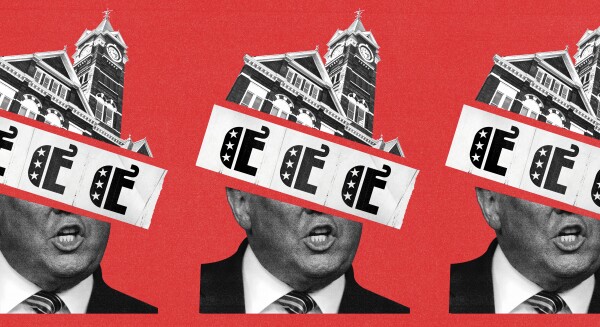
Another Round of Cuts Hit Colleges in March
April 2, 2025
F-1 visa in 2025: What Indian students need to know about delays and policy changes
April 10, 2025Across the country, many college administrators have had similar unusual experiences in the past week: They’ve checked an online database and discovered that several international students have abruptly had their immigration documents terminated.
Dozens of colleges have announced that the Department of Homeland Security had revoked visas and ended the legal statuses of international students or recent graduates, sometimes without notifying them. At least 147 students have been affected, according to The New York Times.
The University of California at Los Angeles reported that six of its international students’ statuses were canceled as of Sunday. At Harvard University, the number was three; Stanford University saw four. For the most part, administrators have said they were not given specific reasons for the revocations.
Once colleges learn that a visa or status has been revoked, what comes next is uncertain. Enforcing immigration law is the government’s responsibility, not colleges’, though the Trump administration has pressured some institutions to help immigration authorities carry out deportations.
In public statements, most colleges have said they’re offering legal and emotional support to international students and graduates who might be in trouble, but the degree of support is often at the college’s discretion, legal experts said.
Whether students can remain enrolled is also in question. At Duke University, campus administrators said Monday that while affected students may no longer study in the United States, the college will help students complete coursework in their home countries.
Tensions between higher education and the Trump administration — and the looming threat of federal funding cuts — could make some college leaders reluctant to oppose or defy the president’s immigration orders, experts said.
Colleges in the United States enroll more than a million international students each year.
The Trump administration in January threatened to deport international students who had participated in pro-Palestinian protests on campuses, prompting Immigration and Customs Enforcement officers to begin staking out campuses and carrying out arrests. Federal officials have sought to tie the students to terrorist organizations like Hamas and argued that they could be a threat to national security, citing a little-used section of immigration law.
Meanwhile, some international students have had documents revoked for reasons unrelated to campus protests, such as long-ago traffic tickets. And others have chosen to leave the country, fearing they’d be detained if they stayed.
Finding Changes
The Student and Exchange Visitor Information System, or SEVIS, is the federal database that maintains information on international students. It has existed since 9/11 and is administered by the Department of Homeland Security’s Student and Exchange Visitor Program, or SEVP.
Typically, colleges are required to keep the system up to date with any changes to a student’s immigration status, such as changing from a visa to a green card.
In recent weeks, federal officials have been going into SEVIS themselves and terminating records.
The government is legally required to tell a student when it revokes their visa or cancels their legal status, said Veena Dubal, general counsel at the American Association of University Professors and a professor of law at the University of California at Irvine. In some cases, federal officials seem to have skipped that step.
A Tufts University graduate student, Rümeysa Öztürk, was not notified that her documents had been rescinded before plainclothes ICE officers arrested her on the street outside her home on March 25, her lawyers say. In a different case, a Columbia University graduate student, Ranjani Srinivasan, said she was told that her visa was revoked just days before ICE came knocking at her apartment door.
The responsibility of making students aware of their status could now fall to colleges, Dubal added.
“In some instances, students are being told, and in some instances they’re not,” Dubal said. “So we are asking for colleges and universities to check the SEVIS status of their international students on a regular basis so that they can make their students aware if there has been a change.”

Immigration Crackdown
A Grad Student’s ICE Arrest Went Viral. Now Her University Is Demanding Her Release.
By Alissa Gary April 3, 2025
The University of Massachusetts at Amherst started checking SEVIS more frequently in light of visa revocations at colleges across the country, according to a statement on Sunday, and found that five of its students’ visas had been revoked and their statuses canceled. The government didn’t give the university a heads-up about the changes, the statement said.
“Until now, the university has never needed to check SEVIS in this manner,” UMass said in the statement. “We are proactively offering support and resources to those affected by the federal government’s unilateral action.”
While revoking a visa is not the same as canceling legal status, the two have become more intricately tied as the Trump administration seeks to fast-track deportation proceedings.
The relationship between visas and immigration status is a contested issue that has major implications for international students. In general, students can remain enrolled even if they lose their visas. But Duke officials said Monday that their affected students could no longer study in the United States, citing the change in their status.
A new lawsuit, though, argues that the government doesn’t have that kind of authority. The complaint, brought by an unnamed international student, argues that revoking a visa, which gives a student the ability to enter the country, does not allow ICE to also revoke their record and legal status in the SEVIS database.
Lawyering Up
Some colleges are offering legal services for students affected by the sudden revocations.
Temple University said in a statement that after learning a student’s visa had been revoked, it provided the student with “access to legal counsel” and helped them communicate with officials from their home country. The dean of the student’s college also offered “academic and emotional support during this challenging time,” the university said. The student ultimately decided to leave the United States.
What Will Trump’s Presidency Mean For Higher Ed?

Keep up to date on the latest news and information, and contact our journalists covering this ongoing story.
Aside from offering legal advice, UMass also set funds aside for “students who are adversely affected by changes in federal immigration” to help pay for lawyers, housing, and emotional support.
Tufts’ president went as far as to issue a court declaration in support of Öztürk, urging the court to release her from detention so she could complete her studies. Tufts was seemingly the first college to do so.
But other colleges might not be so keen on joining lawsuits for fear of losing federal funding, said Stephen Yale-Loehr, who recently retired as a professor of immigration law at Cornell University.
The Trump administration pulled $400 million in federal funding to Columbia over its handling of antisemitism on campus, leading the university to submit to the administration’s demands in hopes of getting the funds back. Last week, the administration announced a review of $9 billion worth of funds to Harvard, and it reportedly froze $210 million in federal funding for Princeton University.
“We’ve seen the Trump administration threaten several colleges with the loss of millions of dollars of federal funding,” Yale-Loehr said. “And so, some administrators are thinking carefully in terms of what they are willing to do on behalf of international students.”





7 Comments
l32xx5
levitra buy canada [url=https://levinevino.com]levitra online canada[/url] cost of vardenafil
levitra buy uk order vardenafil pills vardenafil 10mg pills
**mindvault**
mindvault is a premium cognitive support formula created for adults 45+. It’s thoughtfully designed to help maintain clear thinking
**prostadine**
prostadine is a next-generation prostate support formula designed to help maintain, restore, and enhance optimal male prostate performance.
**gl pro**
gl pro is a natural dietary supplement designed to promote balanced blood sugar levels and curb sugar cravings.
**breathe**
breathe is a plant-powered tincture crafted to promote lung performance and enhance your breathing quality.
777499 991975Can I just say what a relief to search out somebody who truly is aware of what theyre speaking about on the internet. You undoubtedly know how to deliver a issue to light and make it important. Extra folks require to learn this and perceive this facet of the story. I cant consider youre no much more common because you positively have the gift. 64470